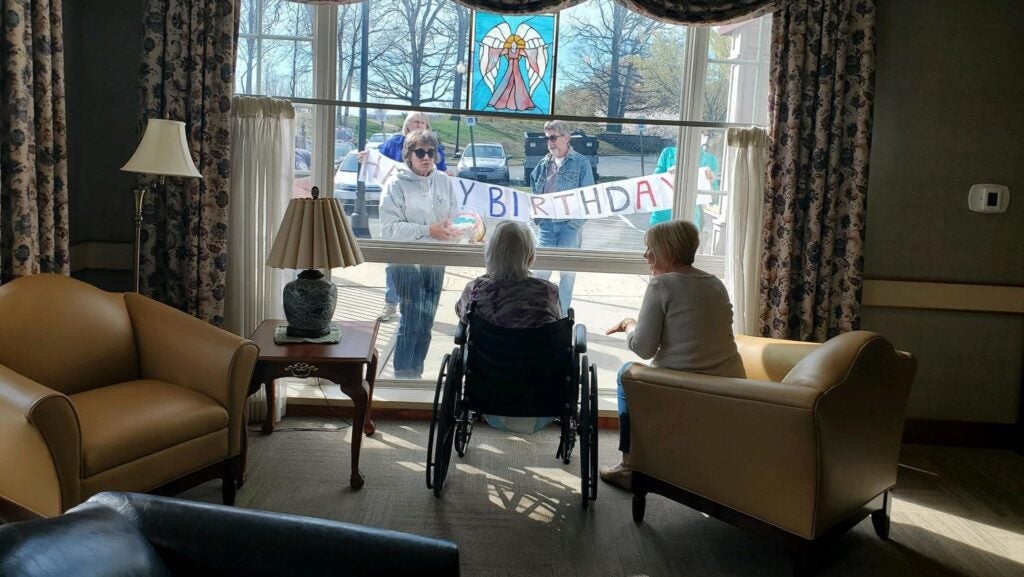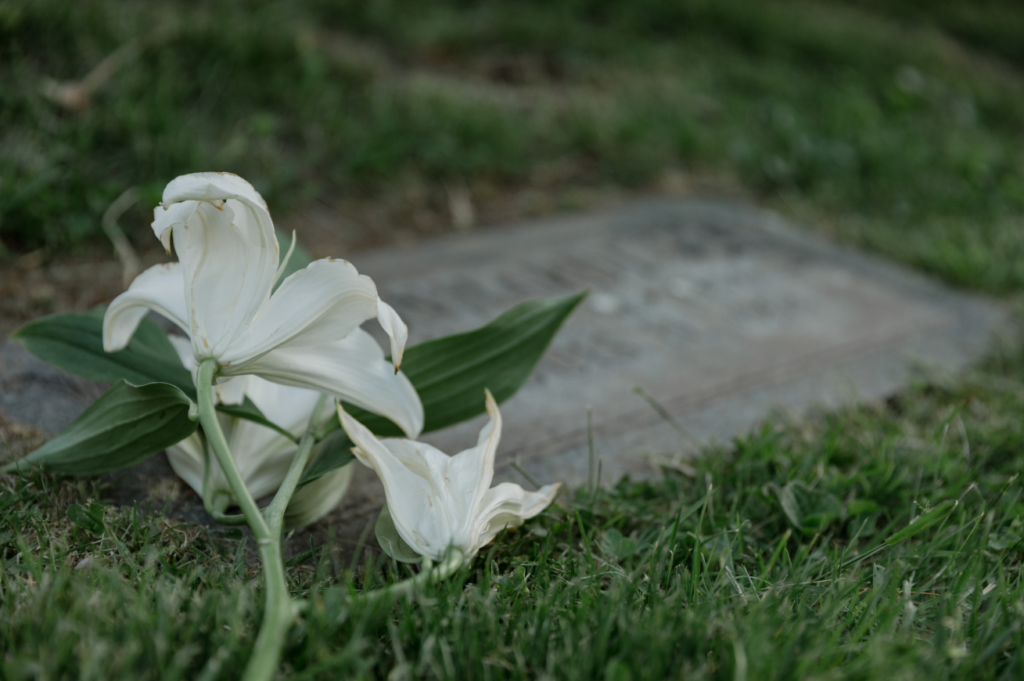

Doris Hollis, a resident of Caritas House Assisted Living, celebrated her 94th birthday March 27. Her family brought a cake and a homemade banner for the special occasion, but there were no hugs.
The family sang to her, but their voices were muffled as they stood behind a picture window outside the Baltimore home for seniors.
Caritas House isn’t accepting visitors as fears of the novel coronavirus have put senior living centers across the country on high alert.
Baltimore Catholic organizations who run senior housing such as Catholic Charities and Mercy Health Services have taken aggressive steps to keep their residents safe because people older than 80 are especially vulnerable to COVID-19, the respiratory disease caused by the coronavirus.
Seniors were some of the first victims of COVID-19 in the United States when the disease spread inside a Seattle-area nursing home in late February, killing at least 29 residents. Over the weekend, Maryland Gov. Larry Hogan announced that an outbreak had occurred at Pleasant View Nursing Home in Carroll County.
Hogan said 66 residents were infected, 11 have been hospitalized and at least one person has died.
“You’ve got some anxiety. You’ve got some fear. You have some that are thankful that we’re doing this. You have some that are still in doubt, asking ‘Is this really happening?'” Regina Figueroa, chief administrative officer for Stella Maris in Timonium, said of the mood on her campus.
Caritas House, a Catholic Charities facility located on its Jenkins Campus, just south of St. Agnes Hospital, has banned visitors. Employees who come into the facility have their temperature taken and must wash their hands, and surfaces are cleaned and sanitized as much as possible. Not even the residents’ bingo gatherings have been spared.
“They like to stick to the routine,” Tim Scherer, director of Caritas House, said of the roughly 60 residents who live in studio apartments and normally eat meals in a shared dining room. “And this has really changed their daily routine up.”
Meals are now delivered to the residents’ apartments and bingo is limited to no more than 10 players.
“Their biggest concern was the burden of switching up the bingo schedule. I got a chuckle out of that.” Scherer told the Catholic Review, the news outlet of the Archdiocese of Baltimore. “They want to play, and they want to play with their friends.”
Scherer said the staff is working to find ways to keep the residents safe while not upending their daily lives. Nurses with laptops are now helping to facilitate video calls between residents and family members. The residents’ weekly Mass, while no longer held in person, is broadcast to their apartments at the same time on Sunday morning.
“We’re just trying to keep normalcy in everybody’s life,” he said.
On the sprawling campus of Stella Maris, more than 1,000 seniors live in a variety of settings depending on their level of care, Figueroa said.
Most of Stella Maris’ residents live on their own in luxury apartments. They, like other Marylanders, have been advised to only leave their homes for groceries and other essential items.
Figueroa said these residents now have the option to have their meals provided by Stella Maris and are receiving constant updates from the staff via email and social media.
Figueroa said that Stella Maris’ nursing and hospice facilities are following the same strict guidelines as Caritas House — no visitors, aggressive screening of anyone who enters the facilities and increased sanitization.
Across Carroll County, some families have considered taking their loved ones out of nursing homes, thinking their relatives may be safer in their homes. But Figueroa cautions that nowhere is risk-free.
“There is a reason and a purpose for long-term care and health care for seniors,” Figueroa said. “And even though you think that it might be safer to care for them at home, I do believe that our organization and every other health care center has the proper nursing care 24 hours a day, meal service, housekeeping and sanitation that would really keep the seniors safer than being at home.”
Olga Garrish has not seen her 89-year-old mother, Julia Tsakalas, in several weeks because of the new rules, but she said she hasn’t even considered bringing her mother, who suffers from dementia, to her home in Cub Hill.
“I think they’re safer where they are,” said Garrish, an orthopedic tech for MedStar Health. “There are too many variables at home. And you know, you got to put some faith (in Stella Maris). We’re talking about Catholics here.”
On March 31, Garrish and her children finally were going to be able to visit with Julia albeit virtually. Like Caritas House, the staff at Stella Maris was arranging video calls for residents with a higher level of care. Garrish said her mother may not remember the visit, but for her, the “visit” will be invaluable.
“When they sent the email saying that they were going to do this, I was so excited. It’s peace of mind for us,” Garrish said.
– – –
Copyright ©2020 Catholic News Service/United States Conference of Catholic Bishops. The CNS news services may not be published, broadcast, rewritten or otherwise distributed, including but not limited to, such means as framing or any other digital copying or distribution method in whole or in part, without the prior written authority of Catholic News Service.








